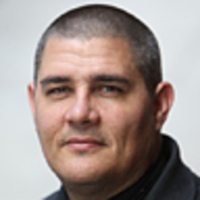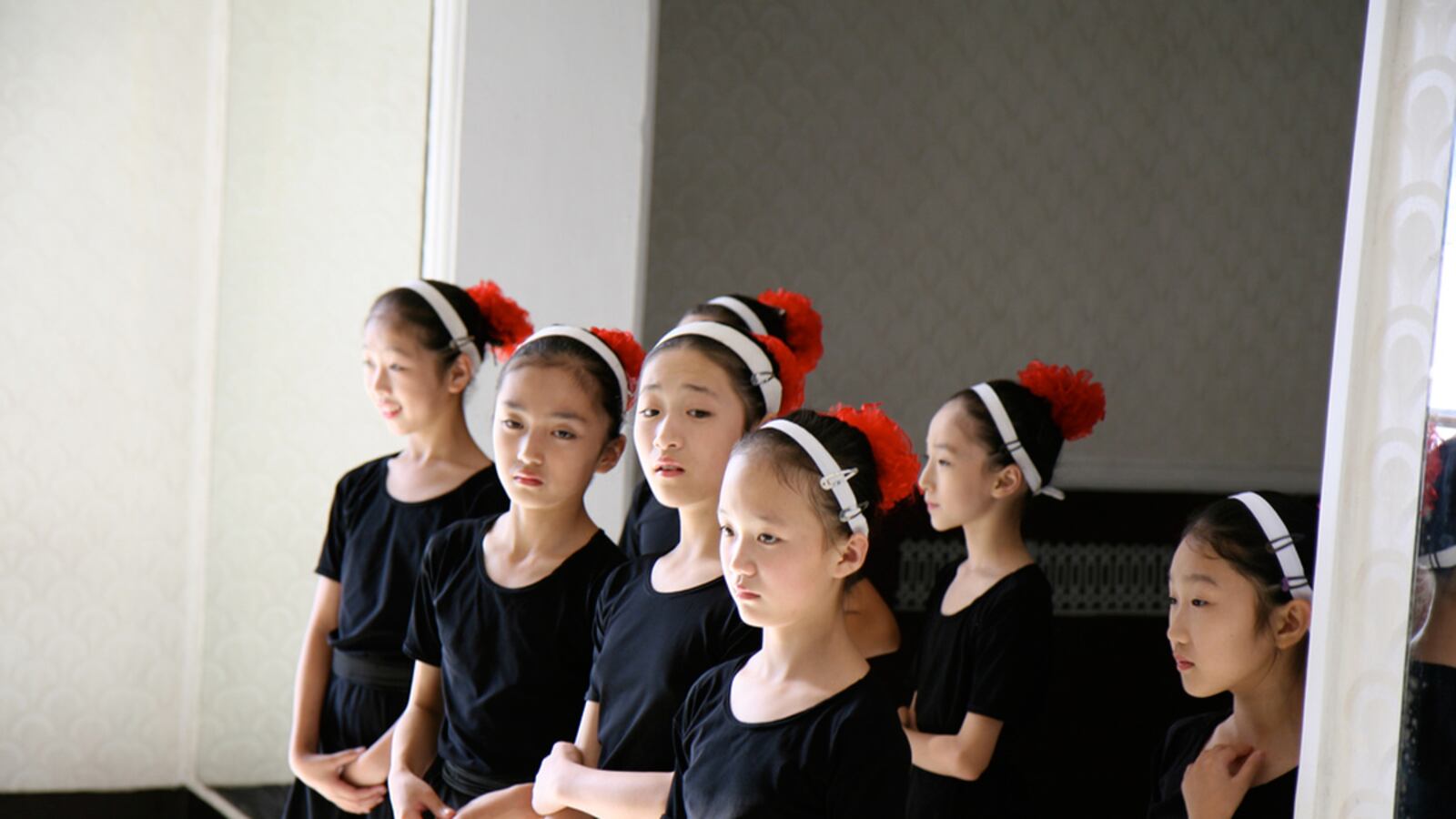After returning from a visit to North Korea in 2007, I eagerly uploaded to Flickr hundreds of photographs I’d taken of Pyongyang, Kaesong, Panmunjom, and the Myohyang area. While posting my photos, I discovered that versions of my favorite pictures were already online. Almost everyone who’d managed to visit the DPRK had snapped that little bell hanging from the eaves of the International Friendship Museum. Everyone had captured the same subway car in the Yongwang metro station, the tumbling Arirang gymnasts at the Mass Games, that same chrome Kalishnikov catching the light.
What a foolish American I’d been to think that I’d had a rare and one-of-a-kind experience. Of course the North Koreans maintained a robotically similar presentation for all their visitors, providing everyone with the same rooms in empty hotels, seating them at the same tables in abandoned banquet halls, lecturing them all via the lone docent in the Korean Central History Museum. I’d known that the visit would be highly scripted and that genuine interactions with citizens wouldn’t be possible, since it’s illegal for them to speak with foreigners. Still, I’d thought I’d had a unique look at North Korea, only to discover I was wrong.
In America, we believe that each person is the central character in his or her own story. In the stories we tell ourselves, characters’ deep-seated desires and motivations send us on trajectories toward what we strive to attain. Along the way, there are complications and conflicts that challenge us and invite us to look inward, but in the end, our characters change, grow and understand.
In North Korea, however, there is one narrative, written almost exclusively by the Kim family. The twenty-three million other people in North Korea have been conscripted to play secondary characters in a national script that starred only Kim Jong-il. These masses had to forego their own yearnings and aspirations in order to play their assigned roles. Failure to do so could result in imprisonment. For an entire populace, change, growth, and spontaneity were dangerous. Acting upon a personal desire, whispering a hidden longing, revealing your true feelings—all the human actions we think of as essential to a character—had be censored by the self lest they be punished by the state.

This truly totalitarian narrative is difficult for us to conceive in America. But remember that North Korea is a nation without literary art. If we define art to mean revealing of the truth and speaking to the human condition, there has been no art whatsoever since the nation’s founding. For over six decades, every movie has paid homage to the goals of the Korean Worker’s Party, all operas extolled the virtues of Juche theory and Songun policy, all the paintings in the Korean Art Gallery Pyongyang had to depict either Kim Il-sung, Kim Jong-il or waves of dutiful peasants sacrificing for their Dear and Great Leaders.
Imagine a world in which no writer has written a literary novel in sixty years. Imagine a place where not a single person has read a book that is truly about the character at its center.
Still, I discovered I’d taken a couple photographs of moments that others hadn’t seemed to capture, and these I treasured: the girls of a dance troupe, standing pensive and uncertain in the stage wings, moments before they donned their mask-like smiles and began dancing with mechanical precision; a group of old women grilling onion stalks on a sidewalk grate; a family of four, furtively stealing chestnuts from a tree in a public park.
There were moments that no camera could capture, like the feeling of being a foreigner moving through crowds of Pyongyangites, noticing how they all wore the same shoes, belts, and red Party pins, seeing how not a single person dared to risk a glance toward this strange and towering figure.
And there was a sight so fundamentally North Korean I was too stunned to photograph it. Driving south from Sunan Airport toward Pyongyang, a lone vehicle on the road caught my eye. I hadn’t been in the country twenty minutes, but the eerie lack of traffic was already unnerving. The vehicle was a dump truck headed toward the countryside, and its bed was filled with residents of Pyongyang. The truck was decades old, and it lacked a tailgate so the people in back were crammed together to avoid falling out. One bump, I thought, would send half of them tumbling into the road. As the truck flashed past, I saw clearly a man in a suit holding a briefcase. Beside him was a woman in a white lab coat. Despite the wind, her eyes were open as she stared without expression at the horizon.
“Where are those people going?” I asked our minder.
“They’re volunteers,” she answered. “They’re going to help with the harvest.”
“They volunteered?” I asked.
She seemed not to understand the question.
“Everyone must volunteer,” she told me.





